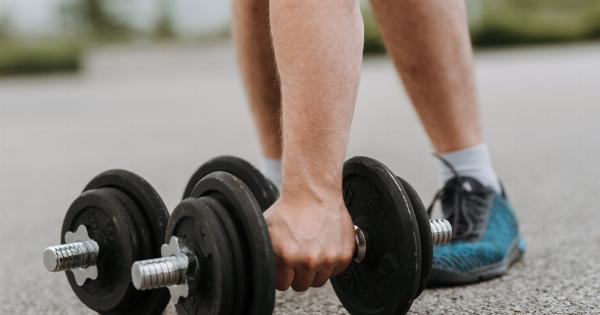Many people embark on a weight loss journey, aiming to shed those extra pounds and achieve a healthier body. Alongside a well-balanced diet, regular exercise is crucial to reach this goal.
However, one question that often arises is whether the timing of your workout can impact weight loss. Is it more effective to exercise in the morning or evening? In this article, we will explore the relationship between workout timing and weight loss.
What is the best time to exercise for weight loss?
When it comes to weight loss, the best time to exercise ultimately depends on various factors, including personal preferences, lifestyle, and individual body clocks.
Some individuals may find it more convenient or preferable to exercise in the morning, while others may feel more energized and motivated in the evening. The key is finding a time that works best for you and allows you to maintain a consistent exercise routine.
The benefits of morning workouts
There are several potential advantages to exercising in the morning:.
-
Increased metabolism throughout the day
Morning workouts can kickstart your metabolism, leading to an increased calorie burn throughout the day.
This effect, known as excess post-exercise oxygen consumption (EPOC), means your body continues to burn calories even after you’ve finished exercising.
-
Improved mental focus and productivity
Starting your day with exercise can boost your mental focus and productivity. Physical activity releases endorphins, which can help improve your mood and overall well-being.
By getting your workout done in the morning, you may find yourself more focused and energized for the rest of the day.
-
Consistency and discipline
Morning workouts often provide a sense of discipline and consistency. By prioritizing exercise in the morning, you’re less likely to have your workout interrupted by unexpected events or distractions that may arise later in the day.
The advantages of evening workouts
However, evening workouts also offer their own set of benefits:.
-
Increased physical performance
Studies have shown that our physical performance tends to be at its peak during late afternoon or early evening. This means you may be able to push harder, lift heavier, or run faster during an evening workout compared to a morning session.
-
Reduced levels of stress and cortisol
Exercising in the evening can help reduce stress levels and lower cortisol, a hormone associated with stress and weight gain. After a long day, physical activity can serve as an excellent stress-reliever and help you unwind.
-
Improved quality of sleep
Contrary to popular belief, working out in the evening does not necessarily disrupt sleep. In fact, for many individuals, it can contribute to better sleep quality.
Exercise raises body temperature, and as your body cools down after a workout, it can promote a more restful sleep.
Does the timing of exercise really matter for weight loss?
While finding the best time to exercise for weight loss is important, it’s crucial to remember that the overall energy balance, including a calorie deficit, remains the key factor in weight loss.
Simply put, you need to burn more calories than you consume to lose weight, regardless of the time you work out.
Consistency and adherence to an exercise routine play a more significant role than the specific timing of your workouts. Generally, the most effective exercise routine is the one you can stick to long-term.
Personal considerations for workout timing
There are a few personal considerations to keep in mind when deciding the best time for your workout:.
-
Body clock and energy levels
Everyone’s body clock varies. Some individuals naturally feel more energized in the morning, while others may experience more energy later in the day. Listen to your body and choose a time that aligns with your natural energy patterns.
-
Work and family commitments
Your work and family commitments may heavily influence your exercise routine. Some people find it easier to fit in exercise before or after work, while others may prefer to exercise during lunch breaks or when children are at school.
-
Pre-workout and post-workout routine
Consider your pre-workout and post-workout routines. If you prefer to eat a small meal before exercising, you may find it more comfortable to work out later in the day when your digestion is optimal.
On the other hand, if you like to start your day on an empty stomach, morning workouts may suit you better.
Conclusion
The timing of your workouts may have some influence on weight loss, but it is not the determining factor. The most crucial aspect of weight loss is creating a consistent exercise routine that aligns with your lifestyle and preferences.
Ultimately, the best time to exercise for weight loss is the time that works best for you, allowing you to enjoy and maintain regular physical activity.



























